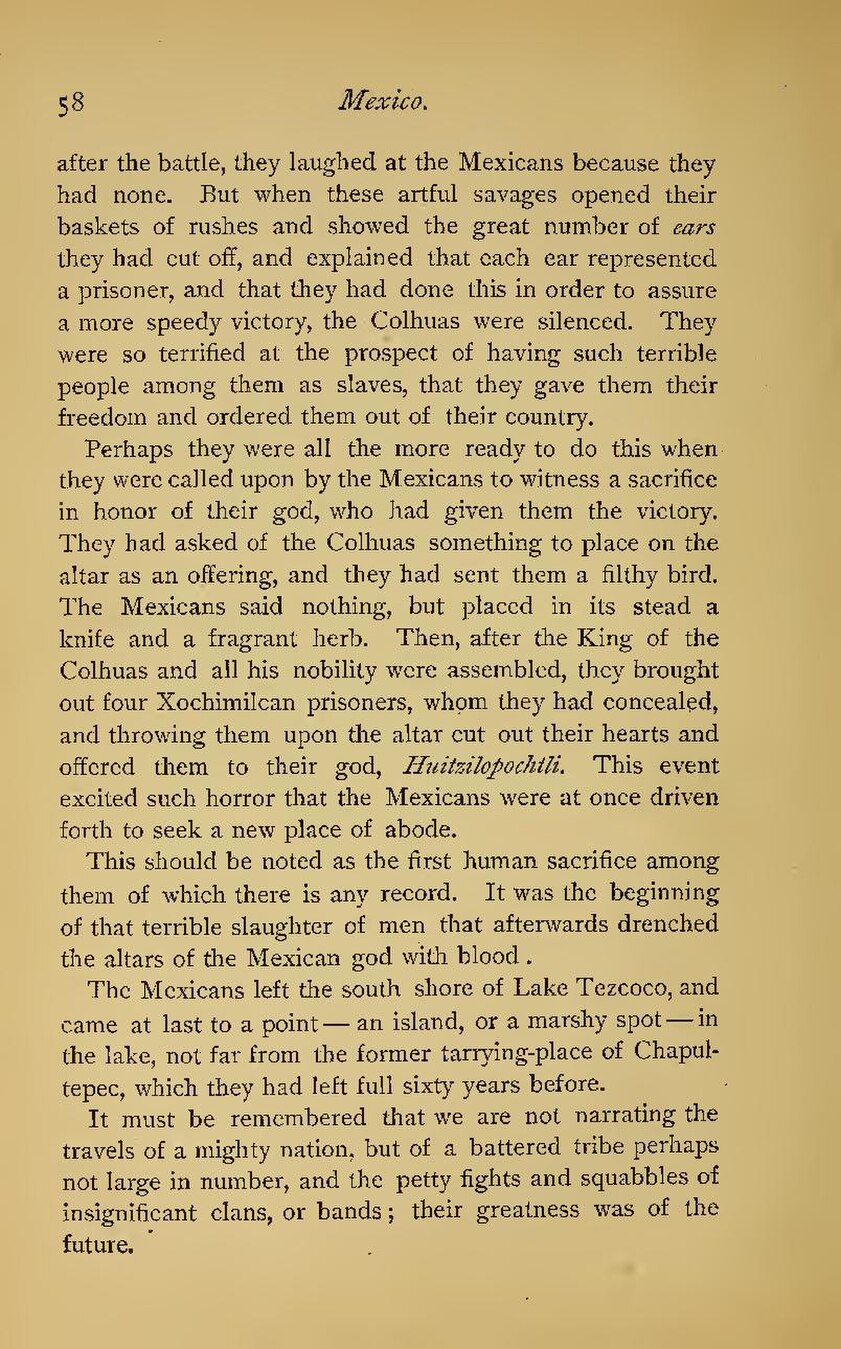after the battle, they laughed at the Mexicans because they had none. But when these artful savages opened their baskets of rushes and showed the great number of ears they had cut off, and explained that each ear represented a prisoner, and that they had done this in order to assure a more speedy victory, the Colhuas were silenced. They were so terrified at the prospect of having such terrible people among them as slaves, that they gave them their freedom and ordered them out of their country.
Perhaps they were all the more ready to do this when they were called upon by the Mexicans to witness a sacrifice in honor of their god, who had given them the victory. They had asked of the Colhuas something to place on the altar as an offering, and they had sent them a filthy bird. The Mexicans said nothing, but placed in its stead a knife and a fragrant herb. Then, after the King of the Colhuas and all his nobility were assembled, they brought out four Xochimilcan prisoners, whom they had concealed, and throwing them upon the altar cut out their hearts and offered them to their god, Huitzilopochtli. This event excited such horror that the Mexicans were at once driven forth to seek a new place of abode.
This should be noted as the first human sacrifice among them of which there is any record. It was the beginning of that terrible slaughter of men that afterwards drenched the altars of the Mexican god with blood.
The Mexicans left the south shore of Lake Tezcoco, and came at last to a point—an island, or a marshy spot—in the lake, not far from the former tarrying-place of Chapultepec, which they had left full sixty years before.
It must be remembered that we are not narrating the travels of a mighty nation, but of a battered tribe perhaps not large in number, and the petty fights and squabbles of insignificant clans, or bands; their greatness was of the future.
